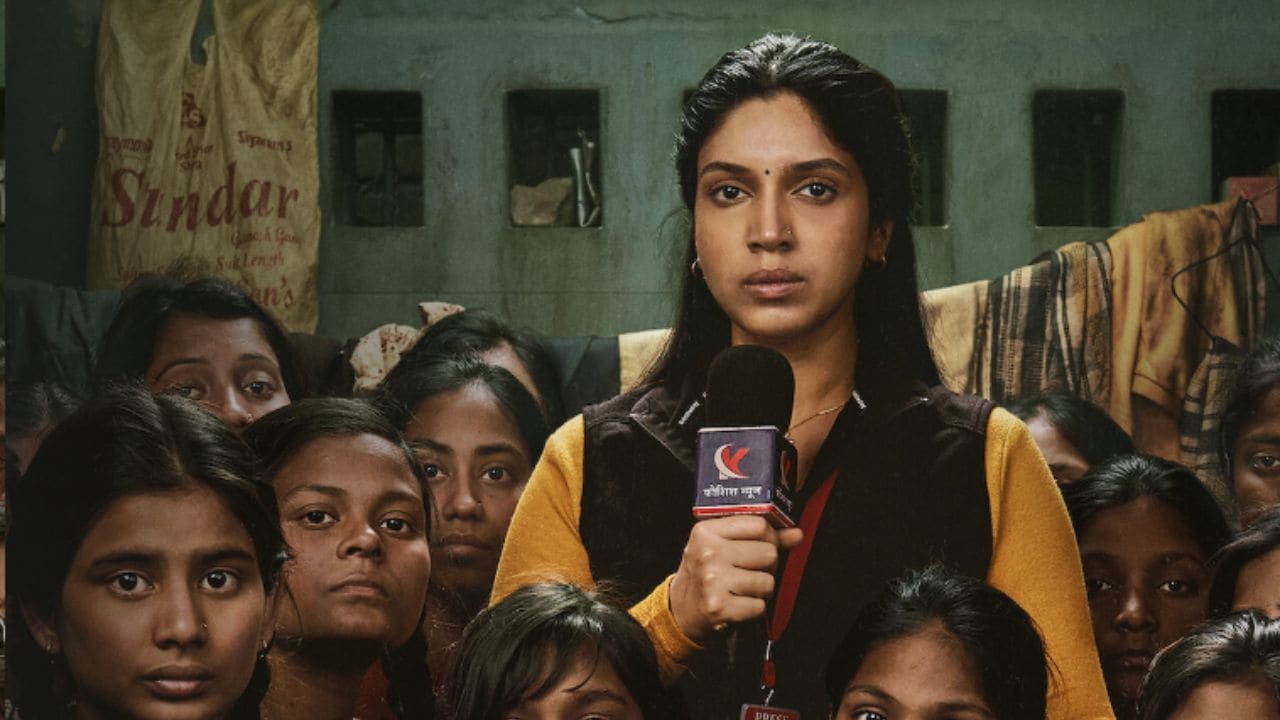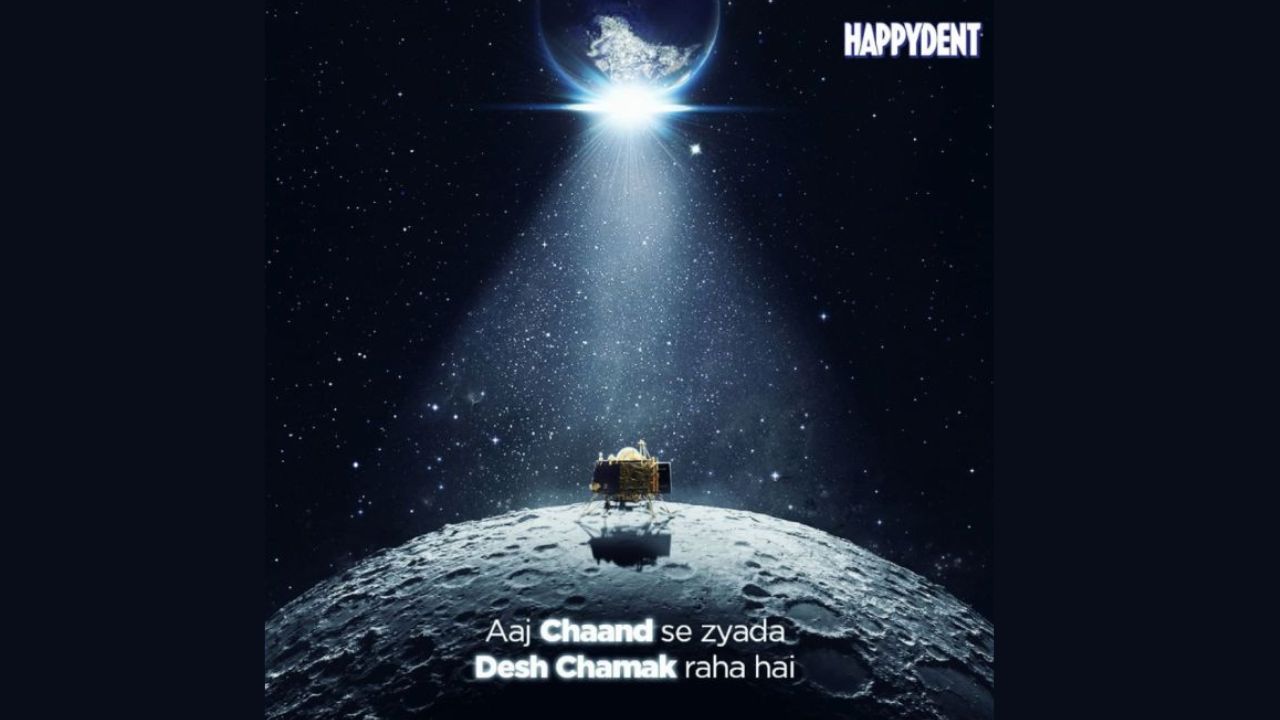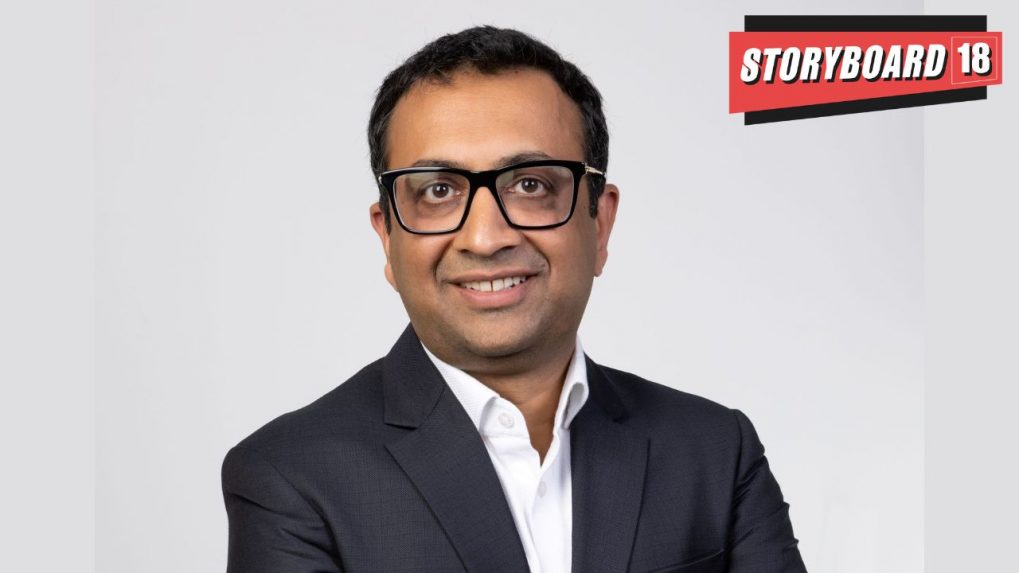Time is the most precious commodity in my role, says Gunjan Khetan, Perfetti Van Melle India
Gunjan Khetan, marketing director, Perfetti Van Melle India, highlighted, “Therefore, for me, prioritisation is the most important thing. Bucketing important and urgent (issues) works like magic. like to ensure I complete my work and don't carry it home as much as possible. "
ADVERTISEMENT
For Gunjan Khetan, marketing director, Perfetti Van Melle India, moment marketing is of paramount importance for the category their company caters to.
Perfetti Van Melle experienced a high in this marketing arena when India tasted success through the Chandrayaan-3 landing near the lunar pole. One of the brands of the confectionery company Happydent, a chewing gum brand, jumped on the bandwagon and released a post on social media where the tagline read, “Aaj Chaand se zyada, Desh Chamak raha hai.”
Khetan stated, “If you can find a role that a brand can play in everyday life, how a brand can participate in various moments that play a big part in an individual's life, society, or the larger cultural narrative, that's where moment marketing comes in.”
Edited excerpts:
The creator economy has taken the world by storm. Which influences and trends are you following?
We are quite conscious of the creator economy and the monetisation of the creator economy. Considering the kind of brands we have and the kind of target group that we work with, mostly either kids or young adults, and in some cases, teenagers and young professionals, we work very closely with a lot of creators.
This is a key pillar of genetic awareness and media optimisation for us. For example, we did a recent collaboration on Mentos where we got some influencers like Orry, Palak Tiwari and Jasleen Arora. So, while they are stars in their own rights, we are also aware that a part of their stardom comes from the social power they hold over the youngsters.
And that, for us, is a good overlap between what the brand intends to do and what some of these influencers can bring to the table.
As an organisation, we are big believers in the way digital, and specifically influencer media, is evolving. And we see it getting more and more powerful. Personally, the trends that I follow revolve more around what I like. I'm a big travel social media follower. This is followed by food, finance, and health.
In some cases, I've seen a recent trend where people are more interested in their health and the way they think about themselves. A lot of people are posting bite-sized videos of their podcasts, which are very good. In a short amount of time, you can get the gist of what is important and interesting to learn. But this is an economy that is there to stay, and we are very actively invested in it.
What marketing-related content do you consume in your free time?
I read a few books, although I am not a big believer in reading marketing books. For me, LinkedIn is a big source. It's probably the social media hub where I spend the most time. There's just so much content on learning and professional development, including marketing.
There are a few people that I like to follow because of the kind of thought that they bring, which is sometimes very disruptive and sometimes very provocative. There's someone called Scott Galloway (a business professional) from Stern College, New York University.
He also has an emailer that he sends on a regular basis and I would certainly recommend people sign up for that. It’s called ‘No Mercy, No Malice’ (TV show).
The other piece that I like is the podcast called Wondery Business Wars, where they take some of the giant corporate battles and tell the story in a very endearing and engaging way. So, you are actually living through the battle, whether it's Nike versus Adidas or whether it's Boeing versus Airbus. It's so well executed that it makes some of these things extremely interesting and simple.
I follow Frederick Fernandez (who runs Frederick Fernandez & Associates) on LinkedIn, who makes bite-sized but highly strategic content, sometimes very provocative.
There's a lot of talk about burnout, workplace toxicity, and hustle culture. So what steps have you taken to avoid the adverse impact of the always-on culture on yourself and your colleagues? And what advice would you give to your peers, colleagues, and next-gen marketers on this?
In my role, time is the most precious commodity. Therefore, for me, prioritisation is the most important thing. Bucketing important and urgent (issues) works like magic. That is something that I practice a lot.
I like to ensure I complete my work and don't carry it home as much as possible. I ensure that I take my vacations and spend time with my family and with myself. Family time is of paramount importance to me, and luckily, we are new pet parents. So my dog helps me relax a lot.
One needs to find some relaxation activity or hobby to do. For me, that's reading and listening to music. Sometimes I go out and play golf.
Is there any sport or fitness routine you practice during the week to steal a few minutes of 'me time' for yourself and keep the momentum going?
I am not a big sports person. During the week, life is way too busy. When I get to steal some time, I try to work on my mental wellness, and I meditate. My hobby is listening to music. There are a lot of these exciting meditation music reels on Spotify.
That is something that I like doing. I am a very early-stage yoga practitioner that I picked up once I moved back to India.
Over the weekend, I love playing board games with my family, and that is one practice I feel brings the family together in a nice, fun, and sometimes competitive way. It just builds character and bonding within the family.
What does your weekend look like?
I like to bucket my weekends into three parts. The most important part is to get rid of the chores that I pile up over the weekend — whether it's any financial work, my job, going to the bank, grocery shopping, etc.
The other important thing is activities with my family, like playing with them, watching a movie, and travelling with them whenever possible. The third bucket is equally important, which is spending time with myself — whether it's reading, writing, or learning. I am also a coach. I coach people on performance and life. I also advise start-ups on scaling their businesses.
So these are a few things that I do for myself to keep abreast of new challenges, which I probably don't get at work because the industry is so diverse.
Share one work hack and one life hack you swear by
The work hack is prioritisation. The second piece is delegation and ensuring that you make the right choice of what sits on your plate and what goes into the plates of people who work with you. And there are two or three advantages associated with this.
One, it frees up my time to do a lot of big strategic thinking and future-forward thinking. The second, prioritisation and delegation helps pass on the message on what is super important and what is just important.
That also drives prioritisation within the team. The third thing is that delegation is always empowering, and it brings new ideas to the table.
Sometimes I'm not able to think about a problem in a way that maybe a brand manager can. Because I come with my own biases.
So, this is the work hack that I generally use for prioritisation and delegation.
What are you watching or streaming this weekend?

(Image source: Netflix)
I like Noir crime pieces that are coming out. Some time back, I watched Bhakshak on Netflix.
What are you reading? Any recommendations?

(Image source: Amazon)
Currently, I'm reading two books. One is a book called 'Daring Greatly5' by Brené Brown. The other one is 'Why We Sleep?' by Matthew Walker. I am reading 'Daring Greatly' because I think I understand the power of vulnerability and being able to connect emotionally with the team.
I've been eyeing this book for a long time and just had the time to start reading it. As a leader, it's important to be vulnerable. It allows people to reach out to you. It opens doors that they think may be closed. It also helps you connect with the team better.
At a personal level, it unlocks the power to love yourself and to live freely. The book busts a lot of myths about vulnerability and whether it's a sign of weakness or a sign of power. That's an important discussion to have in today's corporate world.
In the case of 'Why We Sleep?', I think in our culture, we tend to de-prioritise sleep. We feel it's a very alpha male thing to not sleep, work very hard, and talk about how many hours we put in at a time. But I reached a point where I felt that it was taking a toll on my body, and that's when I came across this book through a recommendation.
I generally tend to de-prioritise sleep for various other activities.
But understanding what lack of sleep does to your body in the short term and the long term — not just to your body but to your emotions, brain, wellness, and your role in society — is super important.
A piece of wisdom you would like to share
One of the things that I've always found useful is the importance of spending time with yourself, pressing the reset button, looking at the larger things in life, and taking a few steps back once in a while to assess whether you are on the right path and where your life leads you.
This is because our lives are so beautiful and busy doing — sometimes a lot of tactical work — that you can lose focus on the big things in life. So, I tend to unwind, and every month at least have some conversation with myself. This is what I want to do five to 10 years down the line, and I'm on the right track. I am building myself in that direction.
How important is moment marketing as a tool for Perfetti Van Melle India?
Moment marketing in our category is critically important. If you can find a role that a brand can play in everyday life — how a brand can participate in various moments that play a big part in the lives of individuals, society, or the larger cultural narrative — that's where moment marketing comes in.
We try our best to be part of moment marketing. Some brands do it better than others, and that is one thing that we are conscious of and one thing we are actively pursuing.

We have a brand called Happydent. The brand stands for sparkling smiles, and we have a visual mnemonic of a bright light coming out of your mouth. As a country, we had crossed a milestone of landing on the moon, and then Happydent quickly got into that and used that visual mnemonic to celebrate India's landing on the moon, followed by other occasions as well.
Through Happydent, we cracked this game of using our visual tool to drive conversations around moment marketing.
How important is e-commerce and quick commerce for Perfetti Van Melle India?
Consumer buying patterns have changed, and consumer patterns for seeking information have changed. Therefore, digital plays a big part. For an e-commerce platform, some are less suitable. If Perfetti Van Melle was a lifestyle brand or a personal care brand, I could easily understand why I need to be on e-commerce because a lot of information seeking and a lot of idea seeking happens there, and more often than not, it lands into purchase.
In our very impulsive and low-ticket categories, we have a lot of e-commerce platforms. The ticket category is still very small compared to the industry. But one of the personal ambitions we have is to drive the salience of e-commerce for the category and ourselves as well. So, we stay focused on that, and we are driving multiple initiatives to drive that salience.
Would you like to share anything on the marketing front for PVM?
Our brands have been marketing-led over the almost 30 years that we have been in India. We have been lucky enough to create some very iconic brands, whether it's Center fruit and Center fresh, Chupa Chups, Alpenliebe and Mentos etc.
We work with two agencies for our above-the-line (ATL) creatives. They are Ogilvy and McCann. For our digital platforms, we have a multitude of digital agencies.
It is not easy to come to a very different country with a different culture and build so many iconic brands. So kudos to everyone who has come before me to build these brands. Perfetti Van Melle has been able to tap into a cultural insight in terms of how to bring balance to life through our products. So, I think it's a very strong team that is highly motivated, and that kind of reflects in some of the work that we do.


